Archive for 2014
Craig G. Anderson
Upload & Download Captain
Amanda Barany
Proceedings Editor
Shannon Harris
Poster Session Curator
Dennis Ramirez
Showcase Curator
Sean Duncan
Speed Runs Curator
Drew Davidson
Well Played Session Curator
Elizabeth King
Playful Learning Co-Chair
Remi Holden
Playful Learning Co-Chair
Call for Proposals for GLS 12
The GLS Conference is the premier videogames and learning event. Now in it’s twelfth year, our event continues to be one of the top destinations where the people who create and research high-quality digital learning media can gather to discuss and help shape the direction of the field. GLS is best known for its high quality program, top notch attendees list, and playful atmosphere. Each year, we foster in-depth conversation across diverse disciplines including game studies and culture, game design, learning sciences and education research, industry, and policy. Our aim is to connect, learn, and explore.
The submission window for the 12th Annual Games+Learning+Society Conference has now passed. Thanks to those who submitted! You may reference papers from previous GLS conferences by downloading the proceedings from ETC Press.
The deadline for final submissions is June 30th, 2016 for all paper types except workshops and panels. Authors of workshops and panels have until August 31, 2016 to submit their final edits so that they may incorporate details about how things went during the session at the conference. To submit, log in at https://precisionconference.com/~gls/ and select “Submit the print-ready paper” on the Submissions in Progress tab. In this updated version of the paper, you may want to make edits addressing reviewer feedback or make changes so that your paper adheres to the formatting guidelines. Your revised paper should not stray too far from your initial submission. You are welcome to address comments from reviewers as appropriate, but the paper itself should remain substantively the same.
For your final proceedings paper, remember to confirm that author(s) names, institutional affiliations, and contact information are updated. The paper should no longer be blinded. Page limits vary depending on the submission type, so refer to the templates below for length and formatting guidelines. Please be sure to check that your paper matches the formatting on the template for your session type and that the format you use for names and institutional information matches too.
Session Formats
Presentations
Up to 7 pages (TEMPLATE HERE)
15 minute slot
A presentation is an individual 15-minute presentation. We’ll cluster three presentations into each session, and assign a session discussant to draw out common themes and to field audience questions. This is a standard format used by most conferences. Please let us know when you submit if you have any special needs for your presentation beyond a projector and a screen!
Symposia
Up to 2 pages (TEMPLATE HERE)
1 hour slot (limited spots)
Symposia are a coordinated series of paper presentations. They are similar to presentation sessions but are crafted by you to tackle a specific theme or issue related to the conference and the field. Format can vary from a cluster of three or more presentations with a designated discussant to a themed and interactive poster session—be creative! Every symposium ends with audience Q&A, but we especially welcome symposia that promote engagement and interaction throughout. Submissions should provide a description of the overall symposium topic and of the individual presentations within the symposium.
Panels
Up to 2 pages (TEMPLATE HERE)
1 hour slot
Panels bring together three or more experts around a single theme, and let them discuss and debate. Interactivity with the audience is encouraged—what better way to add liveliness to your panel than to let questions from the audience spark new ideas? Format can range from each presenter giving short presentation, then letting the attendees go wild, to designing provocative questions in advance to get the panelists going. Use your imagination! Submissions should provide a description of the panel topic, why it’s important, who the panelists are, and how the hour-long time slot will be structured.
Workshops
Up to 2 pages (TEMPLATE HERE)
1 hour slot
An interactive hour-long workshop in a single session, during which presenters engage the audience directly. Workshops are highly participatory and include discussion and debriefing following the activities. Make things, build things, test things—the sky’s the limit! Submissions should provide a description of the workshop topic and presenters, as well as an overview of the participatory workshop activities.
Posters
Curator: Karin Spader
Up to 2 pages (TEMPLATE HERE)
2 hour session
GLS 12 will again feature our Massively Multiplayer In-Person Poster Session (MMIPPS)—with a delicious dinner and open bar. This submission type is ideal for those who wish to engage in informal, face-to-face discussions about their research with colleagues and other conference attendees. We encourage the submission of ongoing and in-progress research for the poster session.
Well Played
Curator: Drew Davidson
Updated for publication in special issue of Well Played! Now 2 - 5 pages (TEMPLATE HERE)
1 hour slot
These sessions will focus on the experience of playing specific videogames. Sequences from the games will be analyzed in detail in order to illustrate and interpret how the design of various components enable players to learn how to play through the game successfully, as well as how the design of the various elements combine together to create a fulfilling gameplay experience. Presenters are highly encouraged to play games live at the conference to help best illustrate their analysis of the experience. Sessions will explore narrative development and game design, highlighting overarching themes and game play mechanics and providing a variety of perspectives on the value of games. These sessions are inspired by the ETC Press Well Played book series and Well Played journal that is based on this format of conversational scholarship. The goal of these sessions is to help further develop and define a literacy of games as well as a sense of their value. Videogames are a complex medium that merits careful interpretation and insightful analysis.
GLS Showcase
Curator: Dennis Ramirez
Up to 2 pages (TEMPLATE HERE)
All day event in Game Arcade & evening GLS Showcase Awards Show.
The third annual GLS Showcase is soliciting educational games created by conference attendees. In the submission, please provide a short description of your game, you game’s education goals, your approach to learning and any other relevant information. All submissions must include links to downloadable demos and/or videos of game-play. If your game is selected, you will have the opportunity to share it in an all-day, arcade-style setting where the GLS community can play and talk with you about your game. Accepted games will also be reviewed by a panel of judges composed of industry and education leaders for inclusion in the GLS Showcase Awards Ceremony.
Proceedings
Editors: Amanda Barany and Stefan Slater
Be aware that by submitting to the conference you are agreeing to have your paper, if accepted, published in the GLS 12 conference proceedings. The proceedings are published with ETC Press and authors retain copyright of their work. Here is a link to information about ETC Press and their copyright policies. Furthermore, if accepted, your session may be videotaped and streamed for free online.
Amanda Ochsner
GLS Conference Co-Chair
Constance Steinkuehler
GLS Conference Chair
Supporting GLS12
Games+Learning+Society has been the premier conference for researchers, game developers, and educators who are interested in how games can improve learning. Each year we welcome over 400 leading figures from universities, science museums, government, game design companies both large and small, high schools, textbook publishers, and a variety of technology start-ups. Some of our feedback from last year includes:
“I’ve attended a number of conferences in my day but have to say that I enjoyed GLS as the best conference I’ve thus far attended. “
“It is by far the highlight of my academic year, and I make so many useful connections every time I attend.”
We invite you to join us as a sponsor of GLS 12 and take advantage of our unique audience and impact. Our conference supporters play an important role in the success of GLS each year, and we warmly welcome you to participate and be recognized by our attendees as being among a core group of highly regarded companies and organizations.
GLS offers a variety of sponsorship opportunities so that organizations can demonstrate commitment while aligning with their goals and initiatives. All of the sponsorship opportunities below offer significant visibility benefits, including logo recognition on the GLS website, event signage, and printed program. Specific sponsorships offer additional benefits. The GLS Sponsorship guide contains just some of the different ways you can be involved in GLS12. If you would like to contribute in another way, just let us know! Contact us at [email protected] to get started.
Squinky Kiai
Deirdra “Squinky” Kiai is a writer, programmer, musician, and visual artist who creates videogame-like artifacts about gender identity, social awkwardness, and miscellaneous silliness. Most recently responsible for “Dominique Pamplemousse in ‘It’s All Over Once The Fat Lady Sings!'” and “Coffee: A Misunderstanding”, they are currently completing an MFA in Digital Arts and New Media at UC Santa Cruz.
Call For Proposals: GLS 11
The Games+Learning+Society Center and the University of Wisconsin-Madison are excited to announce that the 11th annual Games+Learning+Society (GLS) Conference will be held on July 8-10, 2015, in conjunction with the GLS Playful Learning Summit and the GLS Doctoral Consortium on Tuesday, July 7.
The GLS Conference is the premier videogames and learning event. Now in it’s eleventh year, our event continues to be one of the top destinations where the people who create and research high-quality digital learning media can gather to discuss and help shape the direction of the field. GLS is best known for its high quality program, top notch attendees list, and playful atmosphere. Each year, we foster in-depth conversation across diverse disciplines including game studies and culture, game design, learning sciences and education research, industry, and policy. Our aim is to connect, learn, and explore.
We have a great line-up of keynote speakers this year, including industry leaders Brenda and John Romero and digital media and learning innovator Nichole Pinkard. We will also have an interactive performance of Coffee: A Misunderstanding by Dierdra “Squinky” Kiai. This year also marks the 2nd annual GLS Games Showcase, an awards show honoring the year’s best educational games from top studios and game labs across the country.
GLS hosts a variety of different session types, including interactive workshops on game research and game design; individual and symposia presentation sessions; fast-paced speed run micropresentations; and special Well Played and Working Example sessions. Evening events like the poster session and GLS Showcase Awards Show include dinner and an open bar with beer, wine, and a variety of desserts.
We encourage submissions ranging from traditional paper presentations to innovative formats focusing on gameplay. This year’s conference seeks to engage discussion of the following questions and issues:
- Diversity and inclusivity are important topics of discussion for game communities everywhere. With a plethora of different platforms and a variety genres available, more people play digital games than ever before. The growth of games has brought with it provocative conversations about what it means to be a gamer. We invite papers exploring these issues. What roles can educators in the games for learning community play in efforts to foster diversity and inclusivity in game communities? How might games promote equity and diversity in the games industry and the games for learning community? In what ways are they failing?
- Play has historically been considered the work of children and a reward for adults for a job well done. With the proliferation of digital tools in work and learning spaces and movements like gamification, the relationship between work and play has shifted. What is the nature of the relationship between work and play, and what productive roles can play take in work and school environments? What features of play are currently under-theorized or under-designed for in the digital games space?
- Design is at the heart of the GLS community. Games for learning has proven to be a lasting area of research, not necessarily because of the games and technologies in themselves, but because of the myriad possibilities that games bring to the design of learning environments. How does research on learning drive game design? How can games inform emerging theories of learning? What roles might games play in encouraging learners to engage with the world as designers and problem-solvers?
Submissions will be accepted starting December 1, 2014, and are due online by Saturday, February 28, 2015, 11:59pm central standard time. Complete submission guidelines and templates can be found here. When your submission is ready, please go to https://precisionconference.com/~gls to submit. And while you’re on the Precision site, don’t forget to sign up to be a reviewer!
Questions? Contact us at [email protected].
Amanda Ochsner & Constance Steinkuehler, Co-Chairs
Elisabeth (Betty) Gee
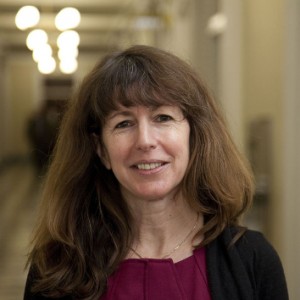 Elisabeth (Betty) Gee is the Delbert & Jewell Lewis Chair in Reading & Literacy and Professor in the Mary Lou Fulton Teachers College and an affiliate faculty member in the Department of English at Arizona State University (ASU). She has published widely on the topics of literacy, gender, gaming, and learning; her recent books include Women and Gaming: The Sims and 21st Century Learning (2010), Language and Learning in a Digital Age (2011), both co-authored with James Gee, and Learning in Video Gaming Affinity Spaces (2012) (co-edited with Sean Duncan). Betty is currently the Co-Director of Play2Connect, a research and outreach project that aims to promote intergenerational learning, communication, and well being through video games. She is PI on the Joint Media Engagement, Play, Literacy, and Learning among Mexican-American Families Project funded by the Joan Ganz Cooney Center at Sesame Workshop. Betty is also PI on the NSF-funded project, The Role of Story in Games to Teach Computer Science Concepts to Middle School Girls.
Elisabeth (Betty) Gee is the Delbert & Jewell Lewis Chair in Reading & Literacy and Professor in the Mary Lou Fulton Teachers College and an affiliate faculty member in the Department of English at Arizona State University (ASU). She has published widely on the topics of literacy, gender, gaming, and learning; her recent books include Women and Gaming: The Sims and 21st Century Learning (2010), Language and Learning in a Digital Age (2011), both co-authored with James Gee, and Learning in Video Gaming Affinity Spaces (2012) (co-edited with Sean Duncan). Betty is currently the Co-Director of Play2Connect, a research and outreach project that aims to promote intergenerational learning, communication, and well being through video games. She is PI on the Joint Media Engagement, Play, Literacy, and Learning among Mexican-American Families Project funded by the Joan Ganz Cooney Center at Sesame Workshop. Betty is also PI on the NSF-funded project, The Role of Story in Games to Teach Computer Science Concepts to Middle School Girls.
Prior to joining the faculty at ASU, she was a professor at the University of Wisconsin-Madison (1990-2007) where was a founding member of the Games, Learning, & Society research collective. Betty was named a 2011 White House Champion of Change for her work on using games and digital media to engage girls in computing.
PRESENTING WITH
SINEM SIYAHHAN
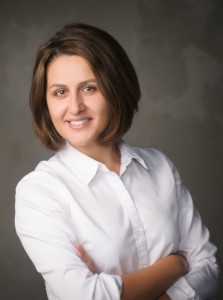 Sinem Siyahhan is an Assistant Professor of Educational Technology and Learning Sciences at California State University, and the Founding Director of Play2Connect, an initiative that aims to support family learning, communication, and connection through gaming. Her scholarship uses design-based research to understand the affordances of digital media technologies, in particular video games, for human-computer interaction, teaching, learning, and social change. She is the Co-PI on the Joint Media Engagement, Play, Literacy, and Learning among Mexican-American Families Project funded by the Joan Ganz Cooney Center at Sesame Workshop.
Sinem Siyahhan is an Assistant Professor of Educational Technology and Learning Sciences at California State University, and the Founding Director of Play2Connect, an initiative that aims to support family learning, communication, and connection through gaming. Her scholarship uses design-based research to understand the affordances of digital media technologies, in particular video games, for human-computer interaction, teaching, learning, and social change. She is the Co-PI on the Joint Media Engagement, Play, Literacy, and Learning among Mexican-American Families Project funded by the Joan Ganz Cooney Center at Sesame Workshop.
Dr. Ernest W. Adams
Dr. Ernest W. Adams is a senior lecturer in the Department of Game Design at Uppsala University Campus Gotland in Sweden. He is also a game design consultant and author who has served in the video game industry since 1989. Ernest worked at Electronic Arts for 8 years as a programmer, lead designer, and producer,chiefly on the Madden NFL football series. He has developed online, computer, and console games for everything from the IBM 360 mainframe to the iPhone. He is also a popular speaker at conferences and arts festivals around the world.
Ernest has written six books including the university-level textbook, Fundamentals of Game Design, now in its third edition. He was also the founder and first chairman of the International Game Developers‘ Association. His professional web site is at http://www.designersnotebook.com.



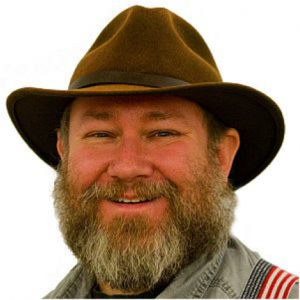

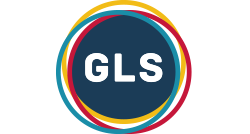


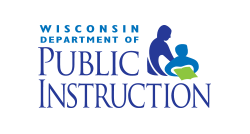
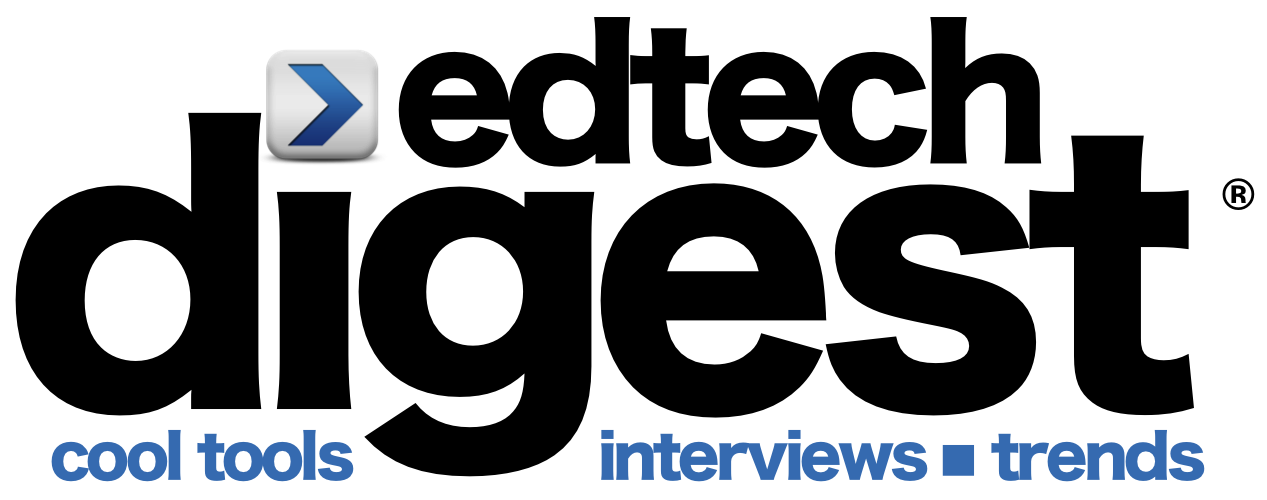
Recent Comments